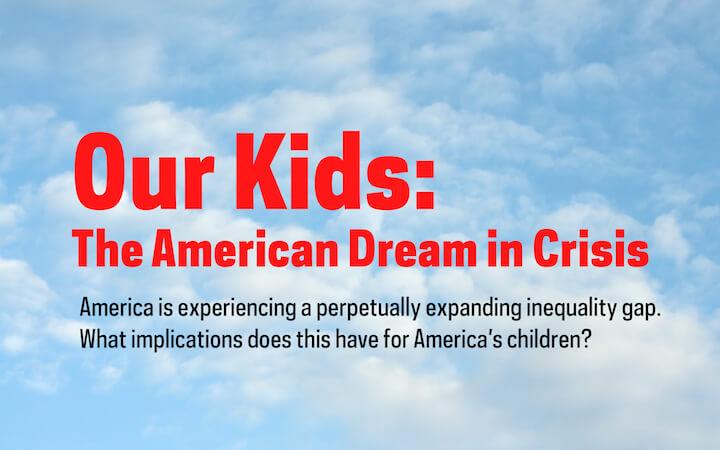Inequality is increasing in America, widening the gap between rich and poor. What implications does this have for America's youth and their chances for upward mobility? What can we do to help our youth grow and flourish?
 Robert D. Putnam, the Peter and Isabel Malkin Professor of Public Policy at Harvard University, will discuss the growing "opportunity gap" faced by today's youth amid the backdrop of an ever-growing income divide in his upcoming lecture, "Our Kids: The American Dream in Crisis.," based on his recently published book of the same title. The event is free and open to the public and will be held in The Patrick F. McCartan Courtroom at the University of Notre Dame Law School at 4pm on March 17.
Robert D. Putnam, the Peter and Isabel Malkin Professor of Public Policy at Harvard University, will discuss the growing "opportunity gap" faced by today's youth amid the backdrop of an ever-growing income divide in his upcoming lecture, "Our Kids: The American Dream in Crisis.," based on his recently published book of the same title. The event is free and open to the public and will be held in The Patrick F. McCartan Courtroom at the University of Notre Dame Law School at 4pm on March 17.
Putnam, who in 2000 published the influential book Bowling Alone, is an accomplished author, having written fourteen books that have been translated into twenty languages. He has won several scholarly awards and honors including the Skytte Prize, the world's most prestigious honor for works in Political Science, as well as the National Humanities Medal, the country's highest award for contributions to the humanities. In addition to Our Kids, Putnam has written extensively on comparative political elites, Italian politics, and globalization. The London Sunday Times has called him "the most influential academic in the world today."
Putnam will speak about the severity of disparities present in the nation's current economic backdrop and its implications for our youth, as well as his proposed solutions to ensure that every child has a chance to succeed. The lecture is the second talk in the Rev. Timothy R. Scully C.S.C. Lecture Series on Education in the Service of Citizenship, hosted by the Rooney Center for the Study of American Democracy and the Institute for Educational Initiatives. Fr. Scully is a professor of political science, the Hackett Family Director of the Institute for Educational Initiatives, founder of the Alliance for Catholic Education, and Trustee and Fellow of the University of Notre Dame.
The first lecture of the series was given by University of Pennsylvania professor of political science John DiIulio.
Photo Credit: Jesse Costa//WBUR Radio
 Alliance for Catholic Education
Alliance for Catholic Education
